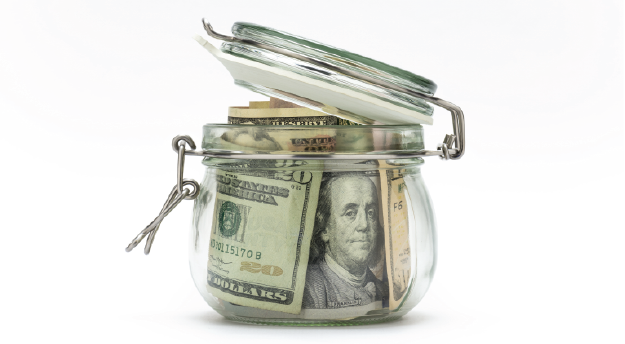For this first module, we’ll tackle Budgeting and Saving. They sound simple, but these two practices are foundational for financial stability and are the first step in reaching broader monetary goals.
Importance of Budgeting
Budgeting is essential for financial health. It allows you to create the short and long-term plans you need to begin reaching your financial goals while ensuring you can meet your financial needs.
Budgeting helps you:
- Take control of your finances.
- Know where you are spending your money to alleviate anxiety.
- Ensure proper savings to prepare for future needs or emergencies.
- Plan for and reach financial goals.
Steps to Create a Budget
The first step in creating a proper budget is knowing what resources you have. You’ll want to start by tracking all sources of income. You’ll then want to track your expenses in a similar way. Look back at the past few months and track what you spent. These expenses should include everything from rent and utilities to groceries and entertainment. Pay particular attention to subscriptions, as these can be significant expenses that often fly under the radar. Old Glory Bank's mobile banking app is designed to make this as easy as possible with its Cash Flow section in the Budgeting and Planning section.
You’ll now want to divide these expenses into their respective categories. These categories can include transportation, housing, healthcare, food (separate groceries from eating-out when you can), and entertainment. Again, if you're banking with Old Glory Bank, the mobile app will do this for you. If you aren't, try tracking your spending through these categories on a spreadsheet.
- First, you have to set aside money for the absolute necessities. These usually include housing, utilities, groceries, and transportation.
- Next, look at the goals you’ve set for yourself. Start with the long-term goals. Figure out how much that goal will cost you in total, and then figure out how much you would need to set aside each year to reach that goal in your desired timeframe. If you realize the amount is unreasonably high, you may need to adjust your timeframe.
- Now, you can look at some smaller goals. The general concept remains the same, except now you may be looking at how much you need to set aside weekly or monthly instead of yearly.
- Remember, while a portion of your savings might be going to these long-term and short-term savings, it is still important to have some set aside for an emergency fund. More on this later.
- Once you have all of your necessities and goals planned for, you can now focus on the non-essentials. This can include anything from going out to eat to watching movies to streaming services. While these are important, remember to prioritize your needs and goals to maintain a healthy financial foundation.
Just because you’ve made your budget now doesn’t mean it can’t change later. Continue monitoring your income and expenses, and if something changes or isn’t working out, go back and reevaluate your budget. Nothing has to be set in stone. It is important to be flexible to maintain efficient spending and saving habits.
Saving: Key to Financial Security
Now that we’ve given a general overview of budgeting, it’s time to examine your savings. There are three key types of savings, as mentioned above.
- Emergency Funds: This is a reserve of anywhere from a few months to half a year’s worth of expenses for unexpected events like job loss or medical emergencies. This can be a large chunk of money, so don’t expect to be able to create this immediately, instead, start putting aside money early to build up this reserve so that it can be ready if you ever need it.
- Short-Term Savings: These savings correlate to the short-term goals you chose earlier. The key here is to budget out on shorter time scales. These will typically be smaller deposits depending on the short-term goal.
- Long-Term Savings: These are arguably the most essential savings for long-term financial stability as they correlate to your long-term goals, like education, home ownership, and retirement.
While these all technically fall under the category of savings, it can be useful to separate them when budgeting to increase transparency.
Here are some other useful savings tips:
Treat savings as a necessary expense, similar to groceries. Set aside the necessary amount of money you need for your various savings every time you get a paycheck, that way you aren’t tempted to use it for more trivial purchases.
You don’t want to keep your savings in a checking account. Instead, utilize high-yield savings accounts that can earn you interest on your savings. Money market accounts can do very similar things. These accounts are where you'll want to automatically direct a portion of your paycheck.
When given unexpected money like tax refunds, bonuses, or even gifts, consider putting most of it in savings. While it may be tempting to use this unplanned money for entertainment purposes, it is far more beneficial as a windfall for future financial complications.
Conclusion
By creating a solid budget with a sound understanding of savings, you’ve already put yourself in a better financial position than many others. You’ve organized expenses, set goals and planned for them, reduced anxiety by increasing clarity, and created a clearer vision for your future financial plans.
Next, we’ll explore the world of credit and how it can be properly leveraged to further help you meet your goals and achieve true financial freedom.

